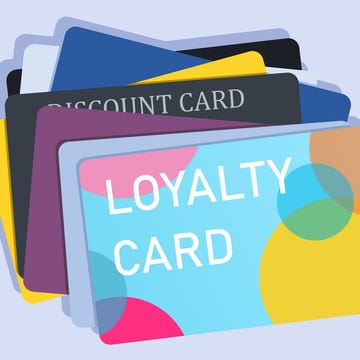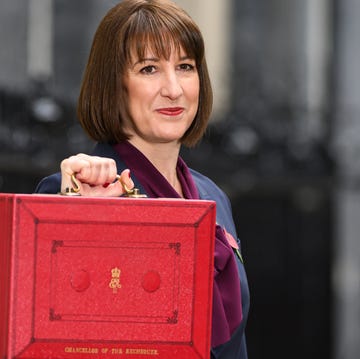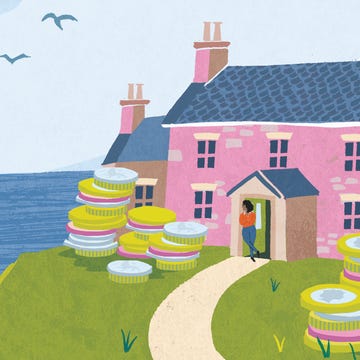The cost-of-living crisis is unlikely to have escaped your notice. The price of everything from petrol to food has seen a significant rise, and while the rate of inflation has been coming down in recent months, it is yet to make a significant impact on our household budgets.
If you’re worried about how you’re going to cover the essentials, such as your energy bills, there may be help available. Here’s how to find out if you are eligible for financial support and how you can claim.
What is the government doing to help with rising energy bills?
Ofgem Price Cap
The energy price cap is set by the energy regular Ofgem and is the maximum amount that energy suppliers can charge you for each unit of energy and standing charge if you're on a standard variable tariff.
From 1 July to 30 September 2024, the energy price cap is set at £1,568 per year for a typical household who use electricity and gas and pay by Direct Debit. This is £122 lower than the cap which was set for between 1 April to 30 June 2024, at £1,690. This means that your energy costs should fall, in theory, although during the warmer summer months you are likely to be using less energy anyway, at least when it comes to heating your home.
The price cap is still higher than it used to be though: from 2019 to 2021 the price cap hovered around the £1,100-£1,200 mark, which is considerably lower than its current level, before shooting up to £4,279 in January 2023, thanks to rises in wholesale energy prices and Russia's invasion of Ukraine.
Check if you’re eligible for benefits
You don’t have to be out of work to claim benefits, and if you’re struggling to make ends meet, there may be help out there for you. To find out if there's any support you may be missing out on, go to entitledto.co.uk or check out our article What Benefits can I claim?
Some schemes such as the Cost of Living Payment, the Energy Bill Discount and the Energy Price Guarantee have all come to an end, so it's worth regularly checking to see what other schemes become available for which you might be eligible.
Help with phone and broadband costs
Households where someone is claiming benefits may be able to switch to a social tariff. These are broadband and phone packages for people on Universal Credit, Pension Credit, Jobseeker's Allowance and Income Support.
The benefits of a social tariff are that they're cheaper, it costs nothing to switch to one, the cost cannot go up mid-contract and you can leave at any time without fees. They’re delivered in the same way as normal packages, just at a lower price. In response to rising living costs, Ofcom is encouraging phone and broadband providers to offer social tariffs to help customers on low incomes. Check Ofcom's list of social tariffs.
The Household Support Fund
If you’re not eligible for other kinds of support, you may be able to receive the Household Support Fund. The fund is being given out to local councils who will distribute it to the public, and it was recently announced that the scheme has been extended until September 2024, the fourth time it has now been extended.
The grant will be distributed through small payments to help vulnerable households cover the cost of essentials like food, clothing and utilities. The specific ways that the money will be spent varies from council to council — for example, some are giving out £200 vouchers to spend at specific shops, while others are providing food to children eligible for free school meals during the summer holidays.
The aim of the Household Support Fund is to help families in poverty, so half of the grant will be given to people with children. However, anyone who is struggling to cover their essential costs can apply.
You need to apply for the fund directly through your council— you will need your National Insurance number to do this. Most councils will test your financial ability to meet your basic needs by looking at your earnings and expenses. Some councils are only giving the grant to people who have already claimed national benefits.
British Gas Energy fund and other energy company support
Some energy companies are providing financial support to households who are struggling to pay their bills. The British Gas Energy Support Fund which is funded by British Gas is currently closed, but applications from people on pre-payment meters are being accepted for its Individuals and Families Fund and you don't have to be a British Gas customer to apply. To be eligible you must:
- Have energy debt up to £2,000 and use a pre-payment meter in your main residence and the energy account must be in the name of the applicant
- You live in England, Scotland, or Wales
- You have not received a grant from the British Gas Energy Trust within the last 2 years
- You must be seeking a grant to clear an outstanding debt on a current or open gas, electricity or dual fuel energy account in your name and the energy account must relate to your main residence. If your application is successful, your energy account will be credited with the grant. Please note the British Gas Energy Trust does not award cash payments
- You have electric and/or gas debt
- You must be in or facing Fuel Poverty
- You have received help from a money advice agency
Other energy companies offering grants include Octopus, EDF, Scottish Power, Ovo, Bulb, E.ON Next and Boost - click these links for more information.
Winter Fuel Payment
The Winter Fuel Payment is a benefit paid annually to help people over 67 cover additional heating costs over the winter months. If you are eligible, you can receive between £250 and £600 a year. The exact amount depends on your age and whether other people in your household also qualify. The amount you get includes a ‘Pensioner Cost of Living Payment’ which last year was between £150 and £300. This was in addition to any other Cost of Living Payments you get with your benefit or tax credits.
You should - if the scheme continues as before - receive a letter in October or November letting you know how much you will receive.
Cold Weather Payment
If the temperature in your area is zero degrees celsius or below for seven consecutive days, and you are on means-tested benefits, you may be able to get a Cold Weather Payment.
The scheme runs from 1 November to 31 March every year and you can receive £25 for every week of very cold weather. Click here to check if you can get a payment.
The 2023 to 2024 Cold Weather payment scheme has now ended. The 2024 to 2025 Cold Weather Payment scheme is due to start on 1 November 2024. You'll be able to check if your area is due a payment in November 2024.
You cannot get a Cold Weather Payment if you live in Scotland. Instead, you may be entitled to a £50 annual payment called a Winter Heating Payment. This is paid out to people on certain means-tested benefits and, unlike the Cold Weather Payment, it does not depend on how cold it gets. Visit mygov.scot for more information.
There is no need to apply for the Cold Weather Payment or Winter Heating Payment.
A reduction on your Council Tax
You could be eligible for Council Tax reduction - sometimes called Council Tax support - if you’re on a low income or claim benefits. Your bill could be reduced by up to 100% and you can apply whether you own your home, rent, are unemployed or working.
What you get depends on:
- where you live - each council runs its own scheme
- your circumstances (for example income, number of children, benefits, residency status)
- your household income - this includes savings, pensions and your partner’s income
- if your children live with you
- if other adults live with you.
Find out first what council district you live in and then check how to apply for Council Tax Reduction on its website.

















